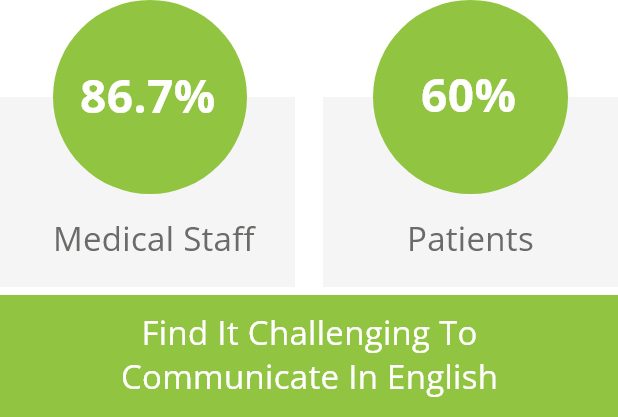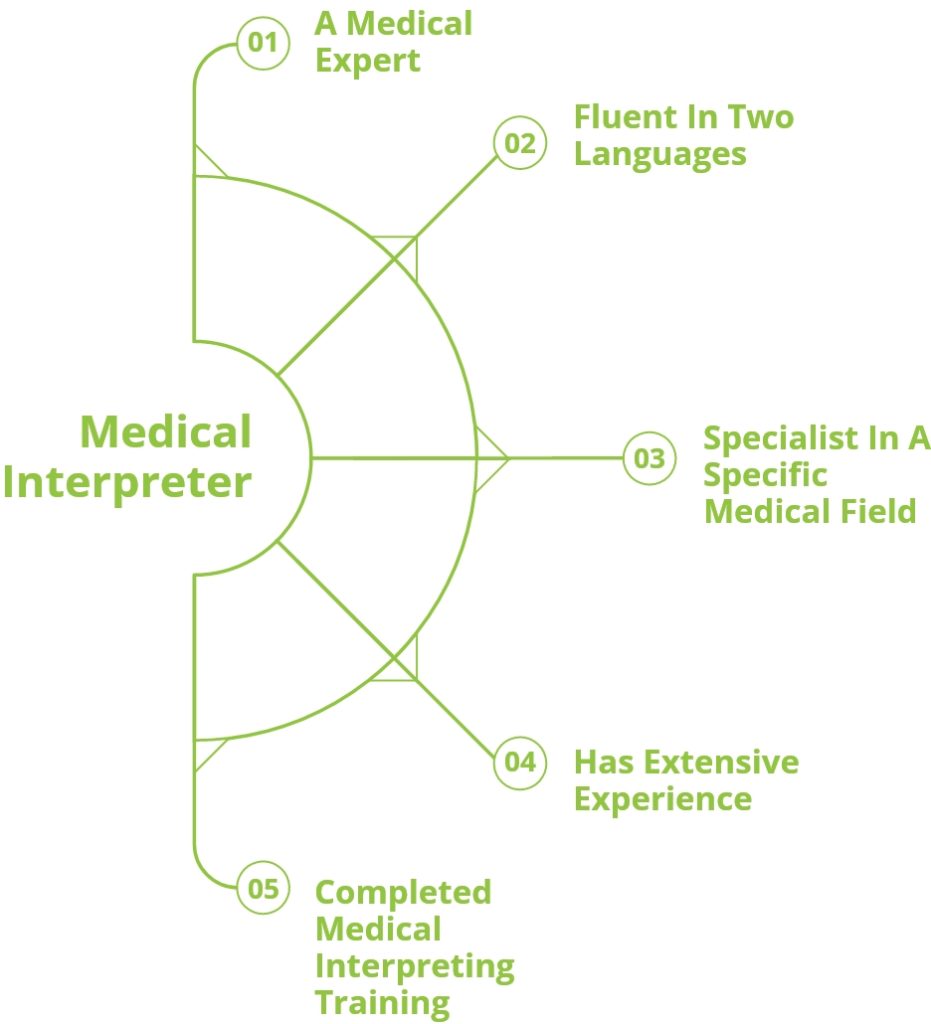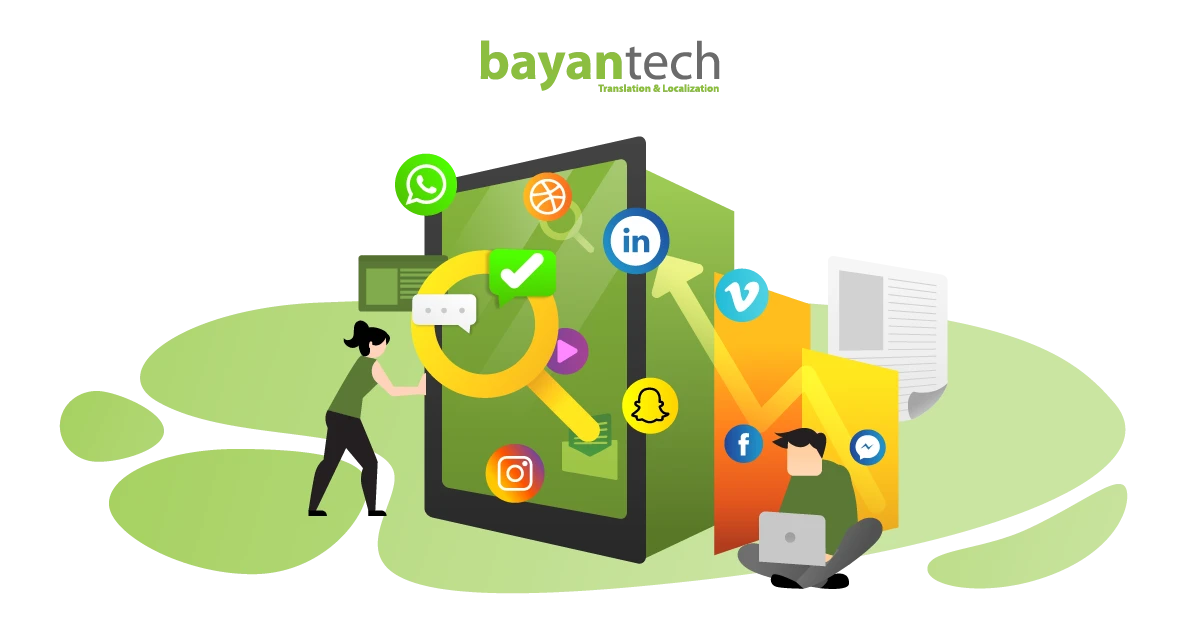Interpreting services play an essential role in many areas of life. And when it comes to the medical setting, in particular, they must be performed with absolute professionalism.
In a world where people seeking medical care are linguistically diverse, language barriers can negatively affect a patient’s ability to discuss their medical condition or to follow the doctor’s instructions. They can find it challenging to communicate clearly with the medical staff, making it harder for a doctor to deliver an assertive diagnosis.
And in extreme cases, a misunderstanding might even lead to life-threatening risks. As such, access to medical interpreter services is imperative to healthcare institutions.
In this post, we discuss the importance of working with medical interpreter services. Join us as we dive into the key traits that you need to have in the medical interpreter you’re hiring.
First, Let’s Define Medical Interpretation Services
Medical interpreting services primarily refer to the conversion of spoken words in one language to their equivalent in another in a medical setting. The “original language” is the language of the speaker and the “target language” is that of the receiver.
Medical interpreter services involve face-to-face, telephone, and video remote interpretation. And unlike translation, it must be done in real-time. Professional interpreters have to process a piece of speech, reproduce it simultaneously or sequentially in the other language, and make on-the-spot decisions
The main goal of medical interpretation is to achieve faithful rendering of communications exchanged between patients and medical staff. Needless to say, this process leaves no room for hesitation or second thoughts.
Given the importance of accuracy and clarity required in medical interactions, qualified medical interpreters must possess specific skills – not just linguistic fluency.
And that takes us to the next point!
What Makes a Skilled Medical Interpreter?
While medical interpreters must be highly proficient in two languages, linguistic expertise alone is not enough.
Medical interpreters must go through specialized training and have extensive expertise in complex medical terminology and healthcare systems. Broad-based bilingual training isn’t sufficient to qualify linguists to be medical interpreters.
Essentially, medical interpreters must be medical experts, who have in-depth technical knowledge, linguistic competence, and non-verbal communication skills as well as cultural understanding to ensure clear mutual understanding, especially in high-risk situations.
It’s crucial to highlight that it could be risky for both the patients and the healthcare organizations to hire medical interpreters based on linguistic expertise only.
The Critical Role of Professional Interpreter Services for Healthcare
Today, language barriers in healthcare pose several challenges. Take the United States, for example, as a home to high linguistic diversity with a great percentage of non-English speaking populations.
Data indicates that more than 29 million people have limited English proficiency. And 68 million of these people speak a language other than English at their homes, including Spanish, Chinese, and Arabic
Communication barriers caused by such linguistic gaps pose a serious challenge. And in medical settings it’s easy for critical information to be overlooked, consequently impacting the health and risking the safety of multilingual patients.
Still not convinced? Let’s look at the numbers. According to a 2020 study,
Another study in Saudi Arabia investigating the effects of the dominant use of the English language on service delivery in one of the country’s hospitals has revealed significant language and communication barriers between medical practitioners and patients. The study has revealed the following.

By making medical interpreter services available for foreign-speaking patients, healthcare institutions can:
- Minimize the risk of misunderstanding and increase patient safety
- Improve patient experience and ensure effective medical treatment
- Guarantee regulatory compliance and avoid lawsuits
8 Steps Every Medical Interpreter Takes
Looking for a Medical Interpreter? Discover the career path of medical interpreters and the qualifications they need to acquire to take on interpreting jobs in our guide.
Certified Medical Interpreter Services from Top-Rated Providers
As a leading language services provider, bayantech offers certified healthcare translation services and interpreting solutions to meet all of your needs. All of our language services adhere to ISO 9001 and ISO 17100 quality management standards.
We provide face-to-face, telephone, and video remote interpreting in over 120 languages through our highly skilled global network of medical experts and language interpreters. Our language professionals are hand-picked and highly trained to provide the highest level of quality and accuracy.
Ready to get started? Contact us today to discuss your needs with our experienced team. Or request a free interpretation service quote.
8 Steps Every Medical Interpreter Takes
Looking for a medical interpreter? Discover the career path of medical interpreters and qualifications they need to acquire to take on interpreting jobs.









